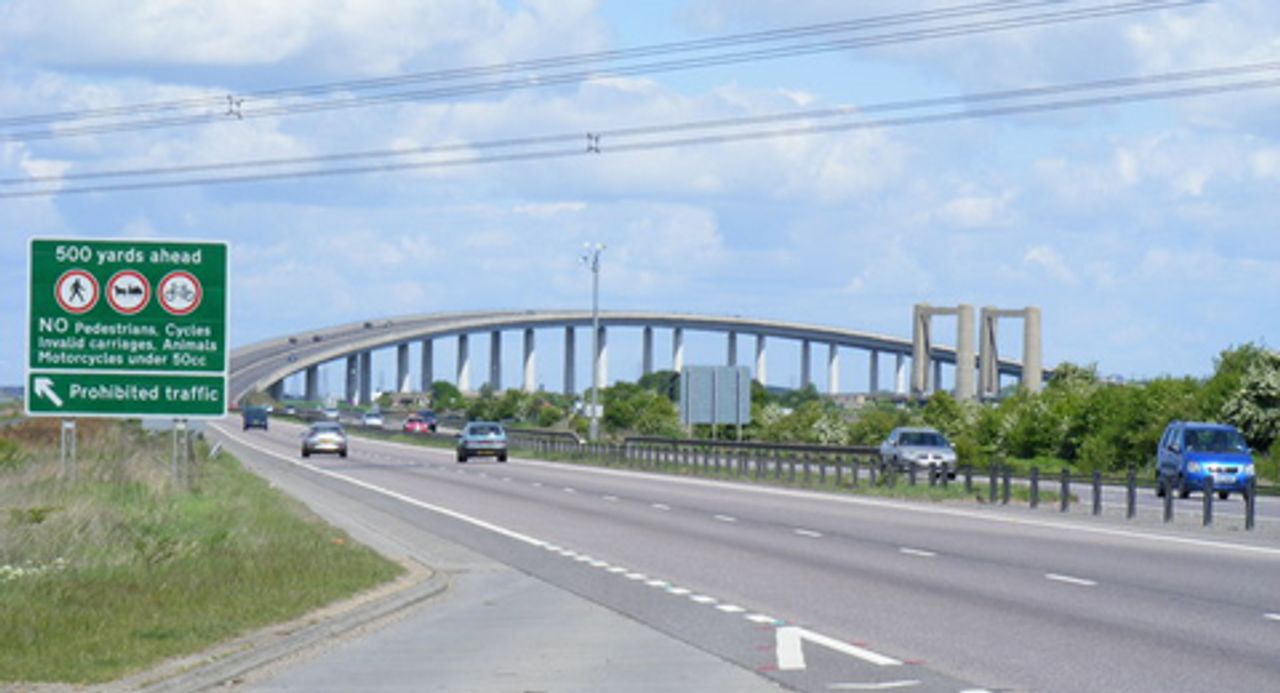Four hundred workers employed by Thamesteel in Kent, England, were made redundant and left unpaid when the company was taken into receivership at the end of January.
The trade unions representing Thamesteel workers, Community, did nothing to resist the closure. They have done all in their power to limit workers’ response to a bankrupt appeal to the government to save the plant, offering their managerial services to help administrators find a new buyer and organise retraining for sacked workers.
Michael Leahy, general secretary of Community (formerly the Iron and Steel Trades Confederation) and Trades Union Congress president last year, claims that he and his members were only given 48 hours’ notice of the Thamesteel mill closing. Yet recycling companies have revealed that the mill had stopped taking scrap metal last November. Workers at the plant told World Socialist Web Site reporters that orders had dried up over the previous weeks.
It is more than likely that the union participated with management to bring about an “orderly closure.” Like all unions, Community long ago became integrated into management structures, going so far as setting set up its own training organisation, Communitas, to oversee downsizing and plant closures.
Communitas EU Ltd (formerly Steel Partnership Training Ltd) was created in 1997 and became a wholly owned subsidiary of the union in 2000. It has received substantial financial support from various UK government funds and EU sources to provide joint union-management training courses, “redundancy support services” and “lifelong learning skills.” It boasts that its policies have had “a key role to play in responses to restructuring, and pointed to the importance both of early intervention, particularly in the period between the announcement and enactment of redundancies, and post redundancy provision.”
The union has plans to go one step further and launch its own recruitment agency. Leahy has made it clear that the days of mass strike action are long gone and that the union’s role is now to help individuals “re-construct their lives through the personal development of their own skill, responsibility and effort.”
In an address to the Institute of Welsh Affairs in 2007, Leahy said, “We want to promote British manufacturing… . We are pioneering a new form of trade unionism which builds on our longstanding presence in communities once based on traditional industries.”
He described how, “Typically, the steel industry in Wales and the UK as a whole has seen productivity increases averaging ten percent per annum over the last twenty years.”
Unsurprisingly, he made no mention of the benefits accruing to steel workers of these huge productivity hikes—because there were none.
Leahy then warned that the steel boom was coming to an end and that Britain had to compete with the likes of India’s Tata Steel, whose success stemmed from “its access to raw materials, low operating costs, and company culture allied to comprehensive training at all levels for continuous improvement.”
Pointing to the fact that Tata’s Indian operations were six times more profitable than its European ones, Leahy called for more consolidation of the European steel industry, greater government and European intervention and action against imports from the Far East. The steel industry would only be able to develop the “trust and confidence” needed to “tackle and resolve” the problems ahead “through concerted action and planning involving the unions.”
With these words, Leahy made clear the unions intend that their members shoulder the financial burden of maintaining the profitability of steel manufacturers.
Within months, the workforce at Tata-owned Corus agreed to cuts in overtime and production bonuses, followed, according to the Financial Times, by an offer by the steel unions to accept a 10 percent pay cut. Steel plant closures increased, including the last remaining production on Teesside in 2010.
Community union representatives told WSWS reporters last week that the steel mill still has 50 staff working inside, mainly for security reasons. The security guard on the gate revealed that six of those were union officials. Union officials have been liaising daily with the administrators “who felt confident there would be a buyer for the plant.” They claimed the mood of the workforce was “upbeat” with a view to a possible buyout. When asked who was interested in the buyout, no answer was forthcoming.
 Tariq
TariqTariq, a redundant worker, explained, “We have been told absolutely nothing by Thamesteel. No contact at all. There has been no response from the owners Al-Turwairqi Holdings, but we are just hoping that someone will buy the company and we can get back to work.
“We knew something wasn’t right because we had no orders coming in—because of the current economic situation nobody was buying steel. The high price of scrap metal has also had an impact on the production costs of new steel.
“There is only one company and now there is a loss of 400 jobs, so everybody is in a deep trouble, especially people who have got a family, kids, mortgages to pay. They have to pay all their bills and we haven’t been paid for January. This is very tough to survive!
“Everyone wants a job as soon as possible. I want to get back to a normal life. Some of these men are highly skilled workers who are desperate to stay in the industry that they are trained for. But the jobs available are only offering very basic wages—nothing like we were earning at the plant. If you lose your job at the steel works, there is no chance of another job in this industry on this island. So people have to look for work in supermarkets and warehouses where the money is no good.
“All the available jobs I have seen are all around the minimum wage of £6 an hour.”

The Isle of Sheppey, where Thamesteel is located, ought to be a thriving place. A spectacular road bridge, the Sheppey Crossing, links the island to mainland Kent over the River Swale, a Thames estuary. From there, fast motorways lead to nearby London. Sheerness, the largest town on the island, is a natural deepwater harbour. The town’s long cobbled High Street and its many shops conjure up an image of quaintness and prosperity, but first impressions can be misleading.
On closer look, many retail premises have been closed, and “To Let” signs are a regular and depressing feature along the thoroughfare. Elsewhere in the town, once thriving industries are threatened with closure.
 Bobbie
BobbieIn Sheerness, Bobbie said, “Unemployment on this island is massive—about 60 percent—and now another 400 are out of work. You can tell by the town. Everything is closed. There is a boys’ club which is threatened with closure because of costs—there’s nowhere to go. Not a cinema, nothing. All we’ve got is pubs. They haven’t even got the hope of a job. I think they have all lost hope. Even the kids aren’t going to school.”
A young man described the environmental pollution that used to come from the mill. “We are all getting poisoned from the iron oxide film which can be seen on cars.”
Workers who complained about health and safety were “got rid of…. The unions make it easy for the company”.
A retired print union rep added, “What the unions are doing is nothing. They are corrupt.”
Fill out the form to be contacted by someone from the WSWS in your area about getting involved.
